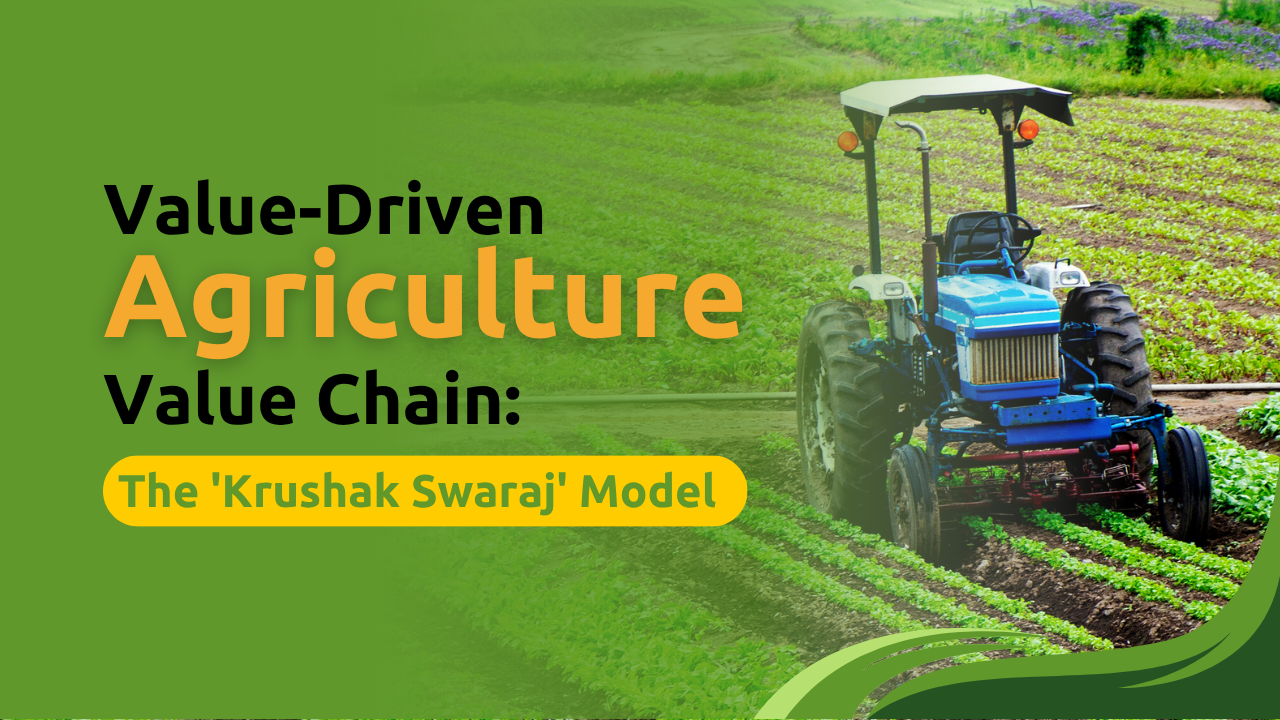
Ritesh Ushatai Bhausaheb Popalghat
Co-founder and CEO of ‘The Farm’, a startup working in agricultural education and research.
Traditionally, farmers have often viewed their neighbors and peers as competitors. However, it is becoming increasingly evident that collective farming can offer solutions to many agricultural challenges. In the Indian agricultural sector, Primary Agricultural Cooperative Societies (PACS) have been deeply established, especially in the credit supply area. Fundamentally, this cooperative model is a form of collective farming, as farmers unite to establish these institutions and operate them democratically.
The Rise of Farmer Producer Companies (FPCs)
This concept of collective farming has led to a growing focus on the ‘Farmer Producer Company’ (FPC) model in recent years. These FPCs are built upon the central idea of a ‘Value Chain’. Our research has involved studying over 100 FPCs in Maharashtra, and some of them demonstrate truly commendable work.
A remarkable example is ‘Krushak Swaraj’ FPC, located in Rajura, Chandrapur district. This company, established after deep study of ideas, value chains, community spirit, and local conditions, has created a sustainable, profitable, and self-reliant value chain covering production, processing, and marketing. ‘Krushak Swaraj’ is opening new avenues for farmers, not just by increasing their income, but also by strengthening their economic confidence and social standing.
Krushak Swaraj: The Integrated Chilli Value Chain
Despite widespread chilli production across the country, farmers constantly face issues like price fluctuations, pressure from traders, reduced profit margins, and lack of processing facilities. Identifying this exact problem, ‘Krushak Swaraj’ united farmers and developed an integrated project for the entire chilli value chain, ‘from saplings to export’.
The core objective was: “A farmer must not only be a producer but also a seller.” Initially, farmers from a few villages collaboratively focused on concentrated chilli production. The company then directly purchased their produce, focusing on the next stages: processing, packaging, and marketing. This approach has made the entire value chain more complete and sustainable.
Inspiration and Guiding Principles
The journey began with Satish Girsawale and like-minded farmer friends. Satish, originally from Panchala village in Rajura taluka, pursued engineering but later turned to social work. His association with Dr. Abhay Bang’s ‘SEARCH’ organization and the ‘Nirman’ fellowship experience made one thing clear: “Discussing farmers’ problems is not enough; a solution with a long-term impact is needed.”
Inspired by the national icons Mahatma Gandhi and Vinoba Bhave, he founded ‘Krushak Swaraj’ FPC, adopting the concept of ‘Swaraj’ (self-rule). This agricultural ‘Swaraj’ represents the farmers’ own business, by the farmers and in the hands of the farmers.
The fundamental idea of Krushak Swaraj is based on five core values: Value-based (Mulyadhar), Contextual relevance (Kaladhar), Meaningful action (Karyadhar), Knowledge-based (Gyanadhar), and People’s support (Janadhar). These principles have provided a strong foundation, ensuring that every decision is taken with ‘farming at the center’.
Innovation in Farming and Processing
Recognizing the need for technical and scientific support at every stage, from pre-sowing to post-harvest, ‘Krushak Swaraj’ established a ‘Krishi Suvidha Kendra’ (Agricultural Facilitation Center). This center offers seeds, fertilizers, medicines, irrigation equipment, and expert consultation all in one place. Agricultural experts are present daily to guide farmers on soil testing, disease control, production planning, and crop management. Digital records are maintained to collect data on productivity and cropping patterns, giving farmers clear insight into their crop results.
Addressing the scarcity of vegetable nurseries in the Vidarbha region, the company developed an innovative ‘Mini Nursery Model’ to overcome the shortage of chilli saplings. This farmer-developed model now ensures the availability of quality saplings locally, creating a new source of income as well.
Realizing that relying only on production limits profit, ‘Krushak Swaraj’ set up a dehydration and powder processing unit for chilli. This unit converts raw chilli into dried chilli and chilli powder, effectively doubling the farmers’ profit and generating local employment. The processed chilli is sold under the ‘Krushak Swaraj’ brand in local markets, supermarkets, online platforms, and through agreements with various companies.
Transparency and Sustainability
The organization maintains transparency by publicly announcing the rates and quantity when buying chilli from farmers. The digital recording of every transaction has increased farmers’ trust. A fixed portion of the sales revenue is paid to the farmers on time, and the remaining amount is returned as a share of the profit at the end of the year. This process transforms the farmer from a mere customer into an active participant.
This model is unique because it balances sustainable farming and market competitiveness. The FPC emphasizes the use of local varieties for production, inclusion of organic fertilizers, technical water management, and utilization of local resources. The future plan includes setting up an export-quality chilli processing center and providing training to farmers on modern tools like online orders, digital payments, and drone spraying.
Impact and Conclusion
The impact of this initiative is significant, not just economically but socially as well. Farmers’ income has increased by an average of 30–40%. Young people have started returning to farming, and employment for women has been created in packing and quality control centers in the villages. ‘Krushak Swaraj’ provides direct evidence that “farming depends not on luck, but on proper planning.”
The decisions within the company are based on thorough study, not just assumptions. The greatest strength of this model is its applicability to other crops. A similar value chain can be built for cash crops like turmeric, onion, and others. Real economic transformation for farmers can occur if a plan based on the ‘pre-farming–post-farming–market’ tri-formula is prepared for every crop.
The ‘Krushak Swaraj’ model demonstrates that the confluence of modern technology, a scientific approach, and direct market linkage can bring about an economic revolution in rural areas. This is not just a chilli value chain, but a chain of the farmer’s self-respect, giving him control over price, market, and future. The journey of ‘Krushak Swaraj’ is an example of self-reliance and knowledge-based management in agriculture. In a rural setting where farming often feels like a struggle, Satish and his team have shown that with the right vision, study, and honest organizational power, farming can indeed become the center of entrepreneurship.






